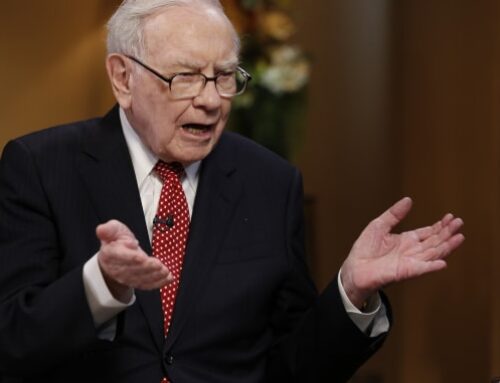This series was something I had been planning for quite a few months. So many books talk about it, and there may be some bloggers, but why am I doing it?
I can’t find the analysis of the First letter of Warren Buffett’s partners.
Some of my readers are MBA students, so I am writing this post for them.
It all started in 1956. Warren Buffett was working with another great name in investing, Benjamin Graham. Benjamin graham decided to retire and offered the best student stake in his partnership. A partnership ( You can call it a Hedge fund in today’s language. but how it was different, I will explain a little ahead.) was doing good and did wonders during the great depression. Warren Buffett denied it and returned to his home. At that time, he was 25 years old. Soon after, he partnered with his four family members and three friends. Buffett Associates ltd was born. Before accepting their checks, What he talked about and what he gave was something similar to his letter are today—ground rules of investing.
- No guarantee of the rate of return. Which is entirely acceptable. When you are investing in capital markets, debt markets, or equity, the risk is always there.
- Any year, if Buffett associate fails to achieve at least 6%. The partners receive lower payments. In his time, they paid their investors 4%. In today’s time, it is called management fees or 2/20 structure. It wasn’t there during his time.
- Market results may not hold good for tax purposes.
- The performance of this investment will be related to the Dow Jones industrial average. The comparison should be with Down jones only. ( Indexing)
- Yearly investing may not be good. Warren Buffett prefers five years. But three years wait necessary.
- Predicting anything is not acceptable when you are investing for the long term.
- Promising results are impossible but keeping the margin of safety is possible.
Before going ahead, I think explaining the concept of a hedge fund is essential.
A hedge fund is a mutual fund of a wealthy person. Unlike mutual funds, there are no restrictions. The structure is of partnership. Few limited partners came together and committed capital. They are limited partners. The fund manager is a general partner and receives a fee out of gains on the whole portfolio. It is like an asset management fee (generally 2% of the total size of the portfolio) and a performance fee ( generally 20% of profit earned). Warren Buffett is different because there was no performance fee. He only accepts asset management fees.
With time many peoples joined this partnership. All of them followed the same protocol. Warren Buffett uses his letters to partners as teaching tools. Even his letter gave shareholders many new terms, like economic moats. He teaches us many unique aspects that many peoples respect.
Another importance of these letters is that these letters chronicle his thoughts, approaches, and reflection in the period immediately before his better-known tenure at Berkshire Hathaway. His letters were the first to highlight the importance of indices as a benchmark or as a portfolio. Today what we use and what is well known worldwide was talked about by Warren Buffett in his letter in partnership. Warren Buffett believes that outperforming indices by 10% is accessible in the long run. But in reality, he did far better. The compounded growth rate of Berkshire Hathaway is 20% vs. 10% on the S&P 500. In a regular word, overall gains on Berkshire Hathaway stock from 1964 to 2019 are 27,44,062% vs. 19,784% on the S&P 500
The lessons we learned from those letters offer timeless guidance for many investors, beginners, experts, and amateurs. They set forth the principles and methods to avoid trendy and technical temptations. I know I am writing this in the era of information technology, where we have terabytes of data readily available. Still, the question is how many know how to read the important part.
As of now, Warren Buffet is not very active in choosing the stock. Another thing is choosing the right person and retiring at the right age. When discussing the traits of successful managers, Mr. Buffett is quoted:
“Passion is the number one thing that I look for in a manager. IQ is not really that important. They need to be able to work well with others and the ability to get people to do what you want them to do. I’d say intelligence, energy, integrity. If you don’t have the last one, the first two will kill you. All you have is a crook who works hard. If a person doesn’t have integrity, you want them dumb and lazy.
If you could put 10% of your future earnings on one of your classmates, you would pick the one that’s most effective at working with people. These are qualities that are elective.”Regarding the employee’s contractual relationship:
“We don’t have any contracts at Berkshire; people stay because they have a passion for their business and I don’t want to screw that up. Not much changes at 65 years old. I have 40 CEO’s working for companies owned by Berkshire. Since 1965, not one of them has left Berkshire Hathaway.”
Referencing Berkshire’s staff:
“Equally important, however, are the men and women who work with me at our corporate office.” “They are proud to work for Berkshire, and I am proud of them.”
But the thing I like about Warren Buffett is he once said that he’d much rather be known as a great teacher than as a great investor. So I think he will be.
So I am going to write about one letter per post. It may be infrequent. But I will try my best to post regularly. Wait till nest post.


